When you’re pregnant there are lots of things you can’t do, and unfortunately this doesn’t change once you’ve delivered your precious baby.
There are many things you should avoid during your postpartum recovery.
Knowing what not to do after giving birth gives your body and mind the opportunity to heal faster, while also preventing potential complications that could put your health in danger.
Whether you’re avoiding strenuous exercise or taking the right steps to protect your mental wellbeing, it’s essential that you understand what is and isn’t healthy for you postpartum.
Your body has been through the wringer, and it will take some time before you can resume your usual pre-pregnancy routine.
There are many important healing tips that will help minimize pain after delivery, and make you feel more comfortable.
So, read on to discover the top 20 things not to do after giving birth!
What Not To Do After Giving Birth
1. Don’t agree to visits if you’re too overwhelmed
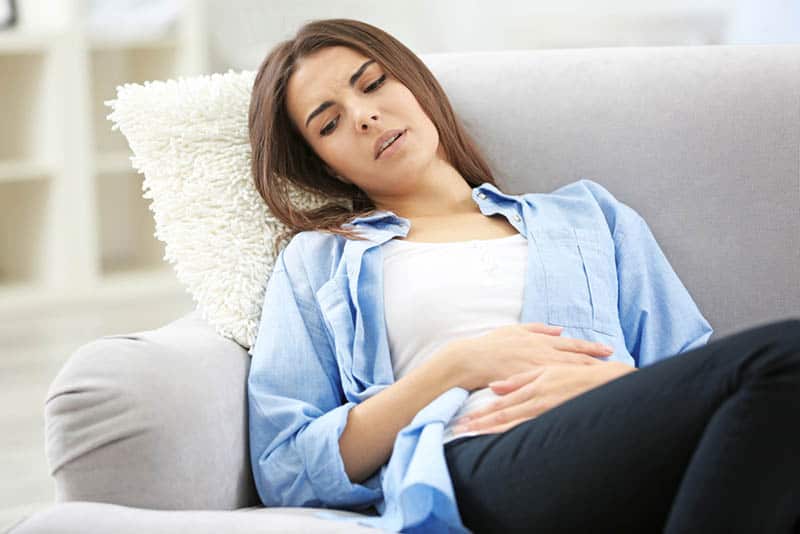
Although healing your body postpartum is very important, I would like to begin with an emotional self-care tip, which is just as important as physical recovery.
It’s perfectly normal for family members, friends, and co-workers to share your excitement about the new addition to your family, and many will want to visit you as soon as possible to see the baby and hear all about how you’ve been doing.
But I want you to ask yourself an important question: do you have the energy for visitors right now?
If the answer is no, then don’t hesitate to let people know that now is not the best time to visit.
You’re not being selfish by establishing boundaries and giving yourself time to rest and heal without the added pressure of entertaining visitors.
Personally, I’ve never experienced anything but understanding when I tell family or friends that “now is not the best time for a visit” but I am aware that many new moms aren’t as fortunate as I am in this regard.
Still, it’s important that you don’t allow yourself to be talked into anything you don’t want to do, and if someone doesn’t understand that you don’t have the energy to entertain guests, then that’s their problem!
2. Don’t underestimate the importance of rest

I’m sure that you’ve already prepared a care kit for your postpartum recovery.
However, there’s one key aspect of healing after birth that can’t be ordered from Amazon, and that’s rest.
You’ll probably be tempted to use the free time while your little one is napping to do the laundry or load the dishwasher, but even if you don’t feel like napping, it’s much healthier for your body to spend that time resting rather than tidying up.
3. Don’t use tampons
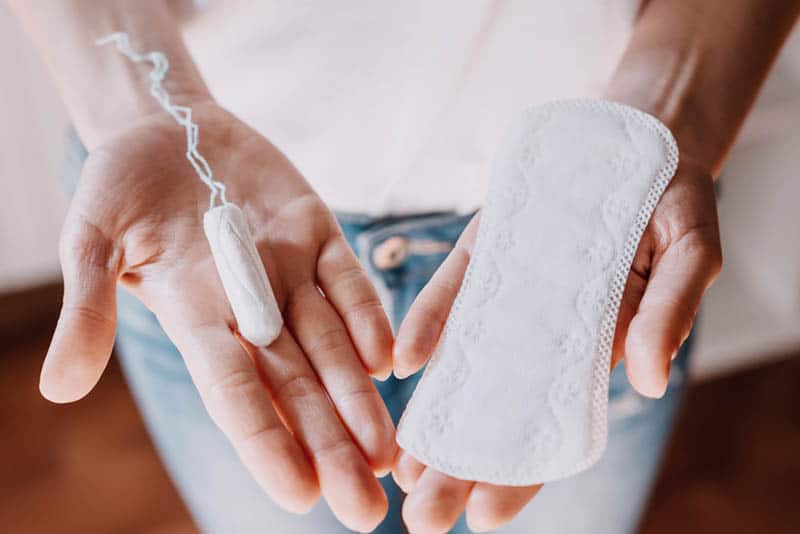
After you give birth you’ll experience vaginal bleeding (also known as lochia) for up to six weeks postpartum.
During this period you can’t use tampons – only pads.
When you have your 6-week postpartum exam, you can ask your healthcare provider if you can resume using tampons.
The same goes for menstrual cups, as both can cause infections.
4. Don’t start exercising right away
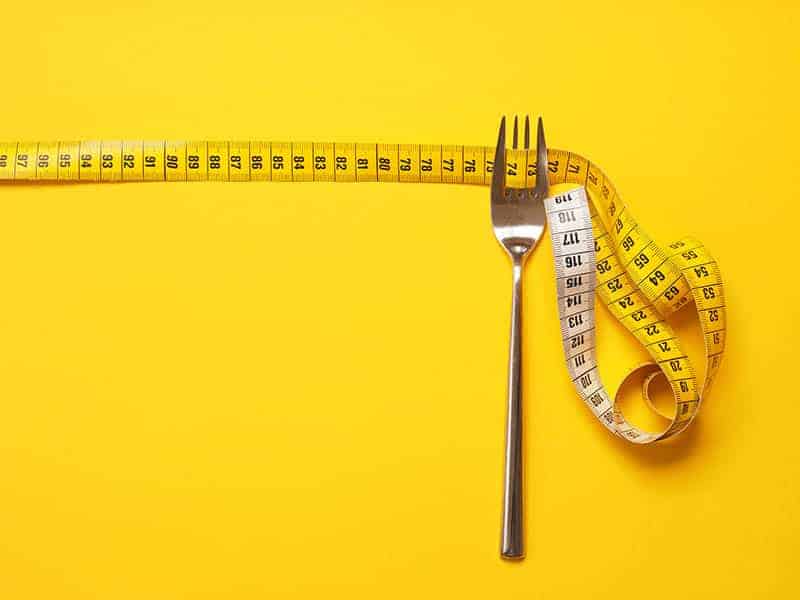
There’s a lot of pressure put on women to “bounce back” after having a baby, either through diet and exercise, or both.
While you should always do your best to eat healthily, although no one will judge you if you have a cheat meal every now and then, you must be careful when it comes to shedding your baby weight with exercise.
If you’re recovering from a C-Section you’ll need to take extra care.
As a rule of thumb, you shouldn’t exercise for the first six weeks postpartum while your scar is healing.
Even when the six weeks are up, you should still talk to your doctor to make sure your body is ready for exercise.
If you had a vaginal delivery you may start with gentle workouts sooner, though this will depend on how the birth went and whether you had any tearing, so it’s best to check with your doctor either way.
You can start off with gentle Kegel exercises that strengthen your pelvic floor muscles, before working your way up to more challenging workouts, depending on your overall physical fitness.
RELATED: Is Pre Workout While Breastfeeding Safe And What Are Its Benefits?
5. Don’t neglect your mental health
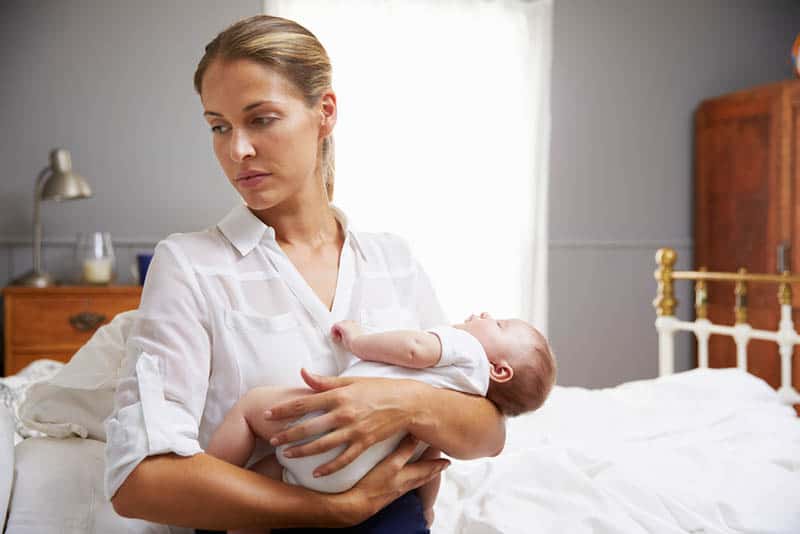
When discussing what not to do after giving birth, it’s important to mention your mental wellbeing.
For the first couple of weeks after giving birth, the vast majority of women experience baby blues, which is a period of mood swings that can last up to two weeks.
This is why it’s important not to neglect your mental health.
Baby blues are often accompanied by symptoms like:
• Sadness.
• Crying.
• Moodiness.
• Irritability.
• Loss of appetite.
• Difficulty sleeping.
• Feeling overwhelmed.
Some women also feel like they don’t know how to properly care for their baby.
Regardless of what your symptoms are, it’s important to get plenty of sleep and enlist the help of as many people as possible.
This way you’ll be able to get through this period as quickly as possible.
Try to spend some time outside, go for walks, and relax whenever you can.
One of the most important things to avoid after giving birth is spending the entire day indoors!
In addition, it’s important to know the difference between baby blues and postpartum depression (PPD), so you can get adequate treatment as soon as possible.
The symptoms of PPD, although similar to baby blues, are stronger and last for a longer period of time.
If you think you have PPD, don’t be embarrassed to get help – it’s more common than you might think, and ignoring the symptoms could cause them to escalate.
This illness is not unique to moms, either – dads can get PPD too.
6. Don’t forget to take stool softeners
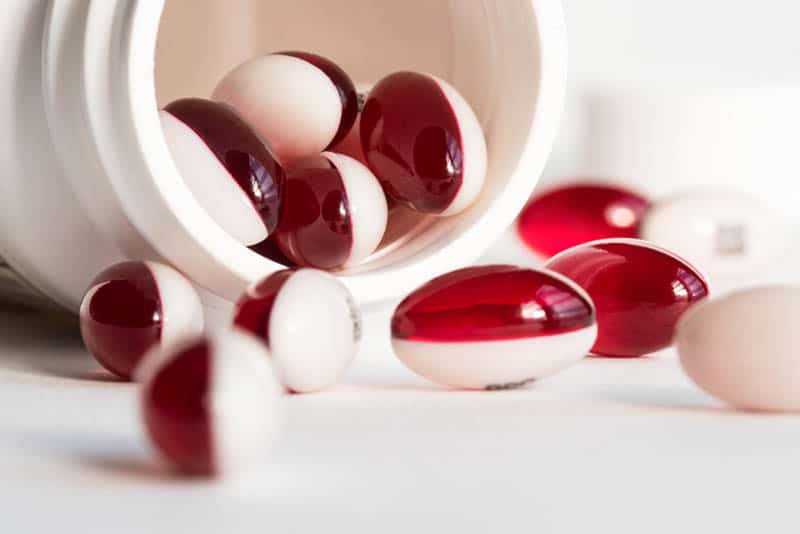
The first bowel movement after giving birth is not a walk in the park, especially if you suffered perineal tearing or your doctor performed an episiotomy (a cut that makes it easier for you to deliver your baby) during birth.
To make matters worse, constipation is very common after labor, so to prepare yourself for your first post-labor poop, it’s best to take stool softeners.
You might be given them at the hospital, but it’s best to put a pack in your hospital bag just to be safe.
Make sure to stay hydrated and eat fiber-rich foods so you don’t get even more constipated.
7. Don’t stop taking your prenatal supplements

While you were pregnant, you were probably taking prenatal vitamins or supplements to ensure your baby was getting all the necessary nutrients.
But don’t stop taking them once your baby is born because your body can still benefit from these nutrients!
Alternatively, you can switch to taking postnatal supplements.
If you’re breastfeeding, these supplements will ensure your baby gets enough of these essential nutrients through your breast milk, plus they can help when you get tired from breastfeeding because they usually contain iron.
8. Don’t forget to think about birth control

If you’re putting together a mental checklist of what not to do after giving birth, I’m sure that “having another baby” is on there.
Considering that you just had a baby, getting pregnant again is probably the last thing on your mind.
However, your body has other plans, as it’s possible for you to get pregnant just three weeks after giving birth.
If you’re currently nursing you should be aware that birth control containing estrogen can cause your milk supply to decrease, so make sure to tell your doctor that you are breastfeeding.
9. Don’t wear uncomfortably tight clothing

Although I’m sure you’re not planning on wearing a pair of skinny jeans anytime soon, I’d like to reiterate that loose clothing is your best friend right now.
As well as sweatpants, you’ll find maternity robes really comfortable (Top Tip: you can also wear them to the hospital), especially if you had a C-Section, but even if you had a vaginal birth, your sore perineum will thank you for wearing comfy clothes.
If you’re planning to breastfeed, a robe will make this process much easier, too.
Now is the perfect time to dig out any oversized T-shirts you have in your closet, as well as any hoodies if the weather is cold.
10. Don’t go against medical advice
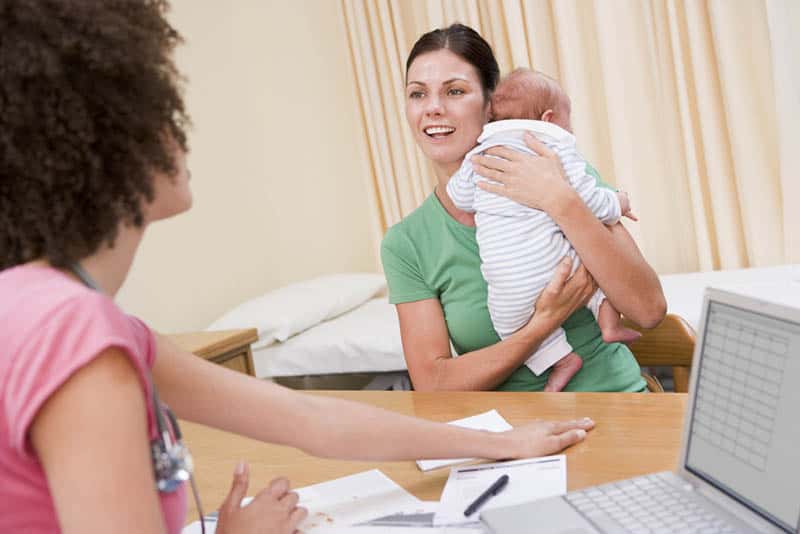
Ignoring medical advice should be at the top of your list of what not to do after giving birth.
Whether you had a vaginal birth or a Cesarean, don’t go against your doctor’s advice.
It doesn’t matter what your mother-in-law tells you, or if you feel like you’re getting “back to normal” – your doctor gave you that advice for a reason, and ignoring it could lead to serious complications.
The same goes for Googling random symptoms and getting freaked out when the internet tells you that you have a life-threatening condition.
Always take up any concerns with your doctor, even if it’s not yet time for your checkup.
11. Don’t be disappointed if breastfeeding doesn’t go according to plan

It’s not uncommon for first-time moms to bring their new baby home and be faced with the harsh reality of nursing, one that’s very different from how it’s portrayed on TV or social media.
The truth is that breastfeeding your baby can be painful, especially for the first few weeks, and when you add issues with milk supply on top of that, it’s easy to get frustrated or feel like you’re doing something wrong.
You’ll probably experience engorgement, and your nipples will become sore – in some cases, they can even become cracked.
Thankfully, there are numerous remedies and nipple creams that will provide relief until both you and your baby get accustomed to nursing.
However, if you are a working mom you might find it challenging to balance nursing and your busy schedule once your maternity leave is up, especially when it comes to nighttime feedings.
Nursing a baby isn’t as cut and dry as people think, so I encourage you to make a decision that’s best for your individual situation.
At the same time you shouldn’t feel pressured to breastfeed if it’s not working out, and especially if your little one isn’t gaining weight.
You will be experiencing enough challenges as a new mom as it is, and it’s okay to replace breast milk with formula to make your life a little easier.
12. Avoid heavy lifting
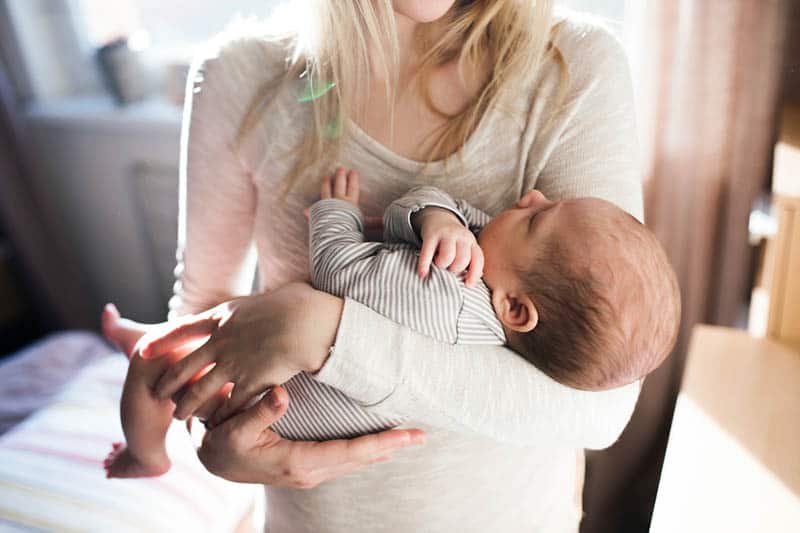
Knowing what not to do after giving birth doesn’t just include avoiding exercise, but also lifting heavy things.
During the postpartum period, it’s essential to remind yourself that certain physical activities are off-limits.
This includes lifting heavy objects, and by heavy, I mean anything heavier than your newborn.
If you have older kids, you’ll need to refrain from picking them up, too.
Heavy objects place too much pressure on your abdomen, so you should wait at least six weeks before lifting anything heavier than your infant.
13. Don’t go swimming just yet

Swimming is an excellent way for moms to relax and get exercise without working up too much of a sweat, but you will need to wait at least four to six weeks after giving birth before jumping in the pool.
This will also depend on how you gave birth, and you’ll also need your doctor’s approval as you may have had certain complications that take longer to resolve.
14. Don’t forget to take a sitz bath

After you give birth, your perineum is going to need some extra care to heal as quickly as possible.
Even if you’re just experiencing soreness and are lucky enough not to have had stitches, there are still things you can do to feel better, such as taking a sitz bath.
In this type of “sitting” bath, you submerge the perineal area in a small amount of water.
This can be done in the tub or a basin that you put on the toilet, whichever option is more convenient for you.
Make sure to thoroughly clean the tub or basin before using it to minimize the risk of infection.
After you fill it up with water, soak in the bath for a few minutes, but don’t stay in for longer than 20 minutes.
The water can either be warm or cool, but it shouldn’t be hot.
If your perineal area is very swollen, then you might prefer cooler rather than warm water.
As well as reducing swelling, a sitz bath can benefit you in the following ways:
• Reduces itchiness.
• Maintains hygiene.
• Reduces soreness.
15. Don’t be surprised if you get hemorrhoids

When it comes to postpartum recovery, hemorrhoids aren’t talked about nearly as often as sore nipples or the lack of sleep that life with a newborn brings.
This should come as no surprise, as they’re irritating, painful to deal with, and don’t make for a fun topic of conversation.
Unfortunately, they’re still a very common consequence of childbirth. Some women even develop them while they’re still pregnant.
If you were lucky enough to avoid hemorrhoids when you were pregnant, I still recommend stocking up on witch hazel pads to provide relief from itchiness, as many women get them during labor.
16. Avoid wiping
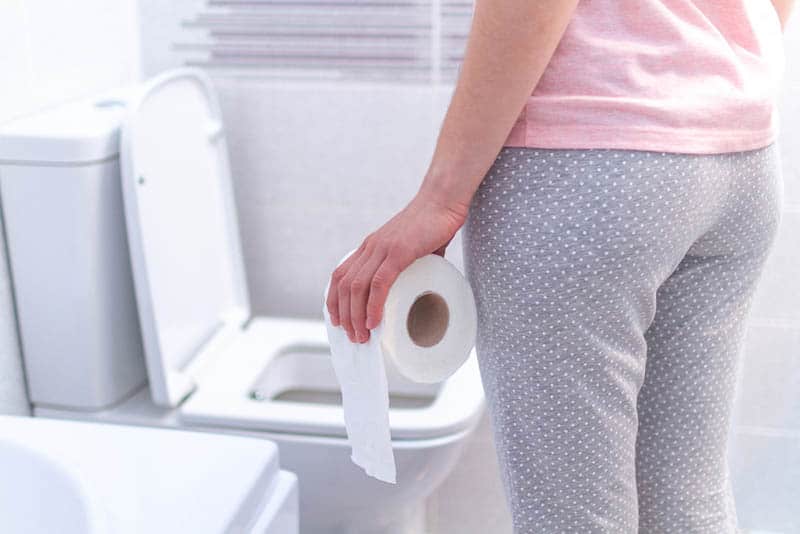
Who knew that going to the bathroom after having a baby could be such a nerve wracking experience?
Depending on how you gave birth, and whether there was any tearing, you’ll need to pay special attention to how (and if) you wipe after going to the bathroom.
For at least the first week after you give birth, I recommend using a squirt bottle to rinse after peeing or having a bowel movement.
This makes it much easier to stay clean without potentially hurting yourself by wiping too hard.
17. Don’t forget to use ice packs
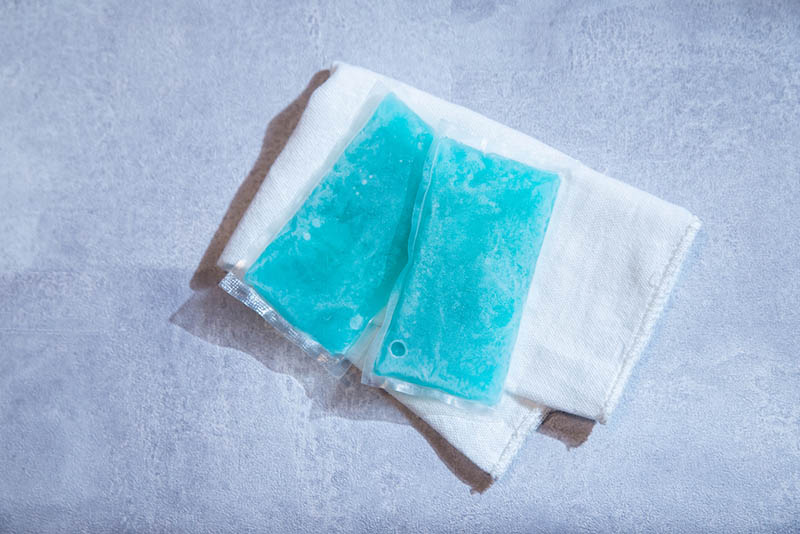
Perineal ice packs are a lifesaver when it comes to soothing soreness and pain after delivery, especially if you experienced tearing.
Some women like to make their own ice packs for their postpartum recovery, also known as padsicles, but you can buy them online as well, which will save you plenty of time.
With a newborn you’ll have a million other things to do, so ordering padsicles online is extra convenient.
18. Don’t go back to wearing your regular underwear right away
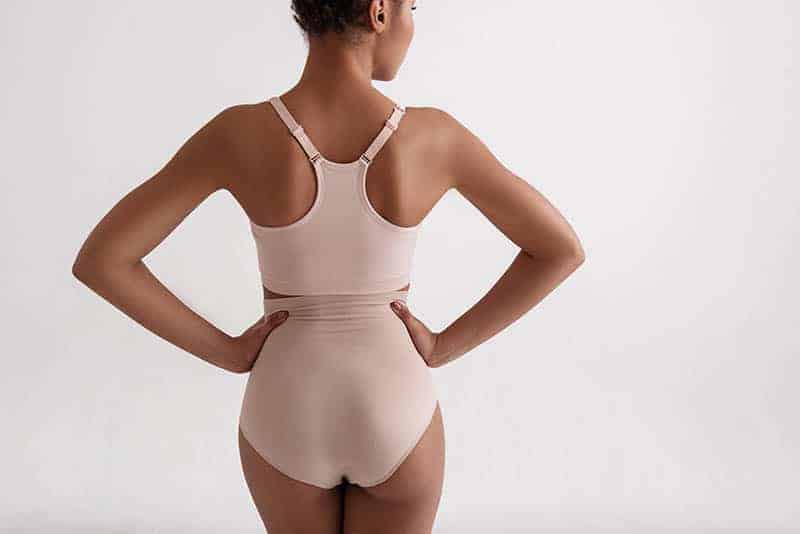
Remember how I said you shouldn’t wear tight fitting clothing after you give birth?
Well, the same goes for underwear.
First off, you’ll need comfy postpartum panties that will allow you to heal faster and are big enough to fit a maxi maternity pad.
However, if you had a C-Section you’ll need underwear that won’t irritate your scar or interfere with the healing process.
While we’re on the subject of undergarments, I recommend investing in a few good-quality nursing bras if you’re planning to breastfeed your child as they offer just the right amount of support, while also allowing you to quickly feed your baby.
19. Don’t ignore the warning signs
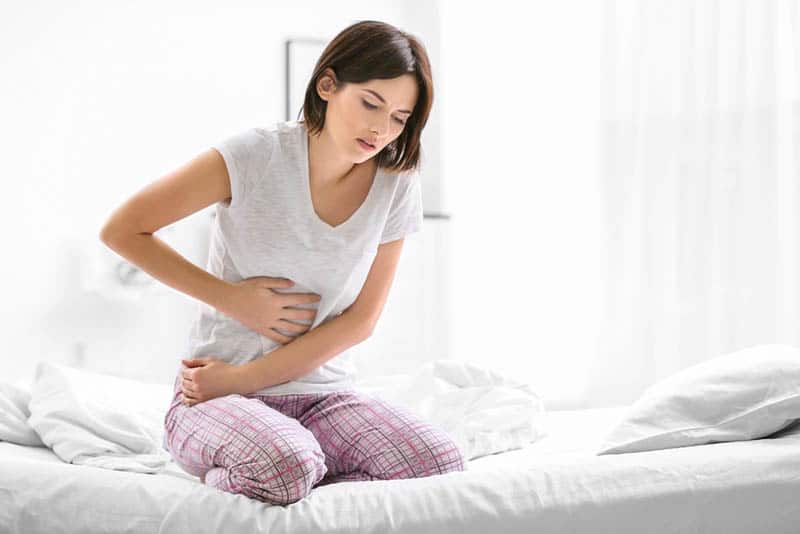
We know women are resilient, after all, you just gave birth to a tiny human!
However, while you’re healing from giving birth you shouldn’t grit your teeth through excruciating pain, or ignore the symptoms of complications that could potentially put your life in danger.
Get in touch with your doctor if you notice any of these symptoms:
• A painful headache that doesn’t resolve after taking medication.
• A painful headache that’s affecting your ability to see.
• There are big blood clots on your pad.
• You are bleeding heavily.
• You have a fever higher than 100.4 degrees Fahrenheit.
• One of your legs hurts, looks swollen and red, and is warm to the touch.
20. Don’t guilt yourself over not being the perfect mom
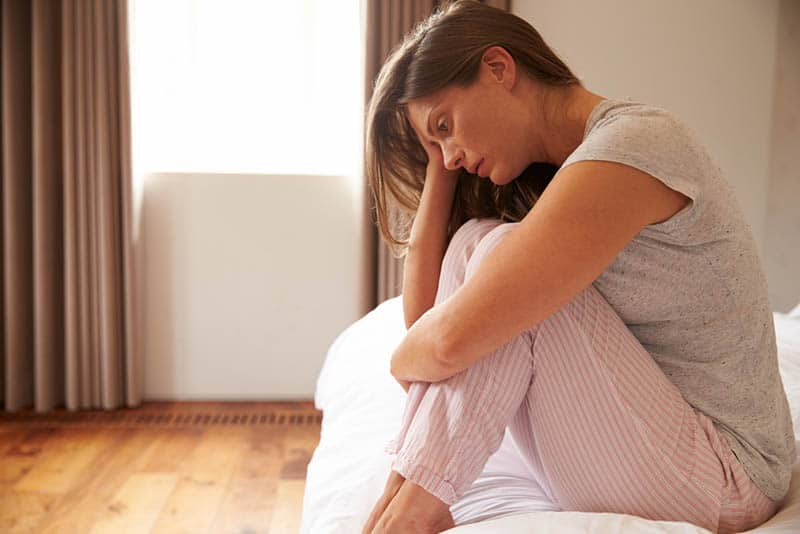
If you’re anything like me, you like to organize and plan everything down to the tiniest detail, but a surefire way of disappointing yourself after bringing your baby home is to have high expectations for how your life is supposed to look now you have a child.
Babies don’t care about plans or expectations, however.
They’ll turn your entire world upside down without a second thought.
So try to go with the flow and take things one day at a time, without feeling guilty that you’re not the perfect mom you thought you were going to be.
Reach out to friends or family for help when you need it, and remember that even though these first few weeks are hectic, they also go by in a flash, so try to enjoy them while you can.
Everything else can wait!
The Bottom Line
Whether you had a Cesarean or a vaginal delivery, knowing what not to do after giving birth will ensure your fourth trimester goes as smoothly as possible.
As well as taking care of yourself physically and following your doctor’s orders, I must also emphasize the importance of nurturing your mental wellbeing.
You may not be ready for high-impact exercise, but a brief walk will help you stay active and clear your head.
Most women experience baby blues, so don’t be disappointed if you’re feeling less than ecstatic about your little one.
These feelings will pass quickly and you’ll be back to your old self before you know it.
Most importantly, don’t feel pressured to entertain guests if you’re not feeling up to it.
You should conserve your energy so you can take care of yourself and your child – other people can wait.
Although this is a non-exhaustive list, I hope you found it helpful and are feeling a little more confident going into this new chapter of your life!
Like this post? Please share or pin it for later. You can also stay in the loop and follow us on Facebook, Instagram or Pinterest.
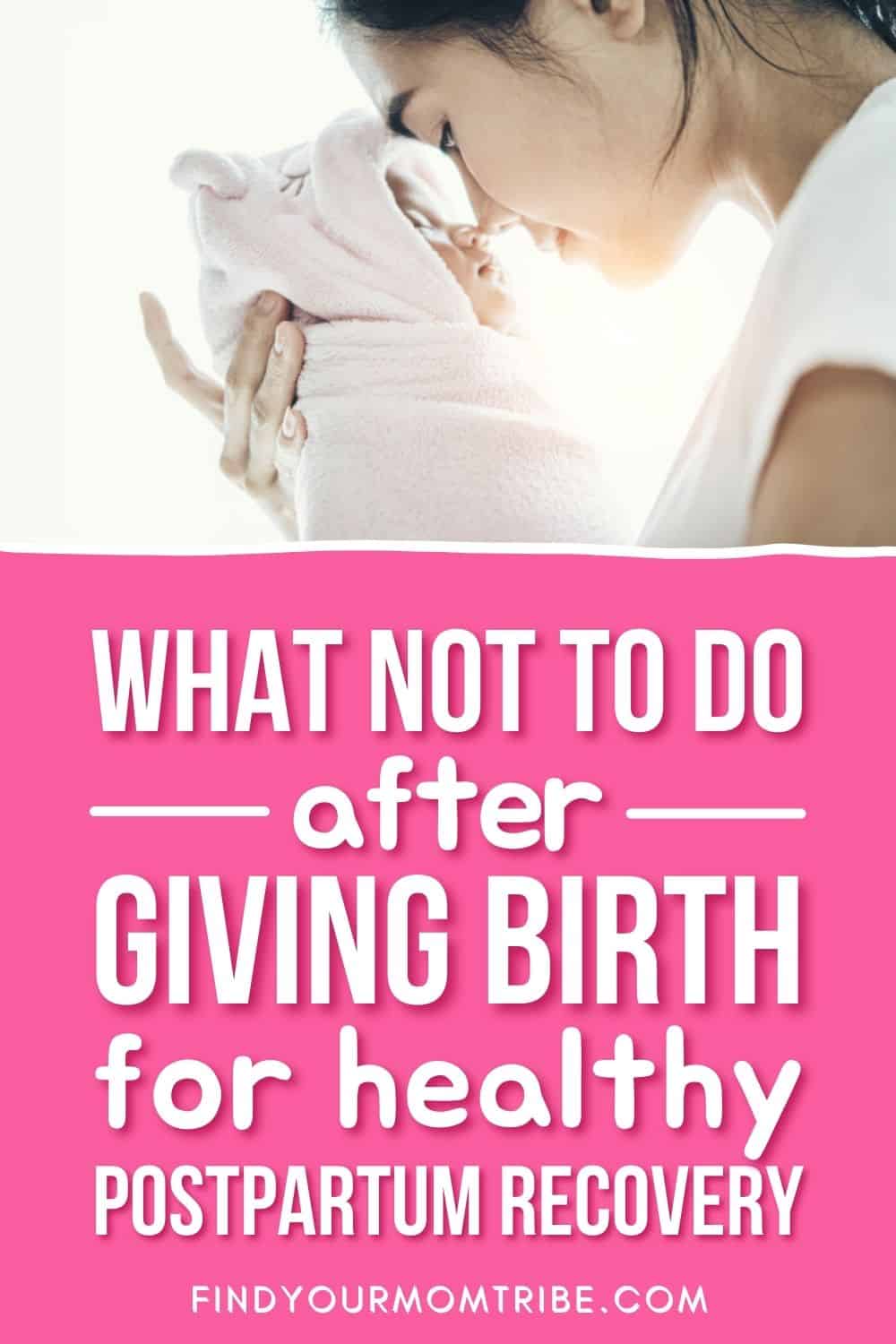
We love honesty! Find Your Mom Tribe is an Amazon Associate and we earn from qualifying purchases through affiliate links at no extra cost to you. Please see our full Amazon Affiliate disclosure for more information.

